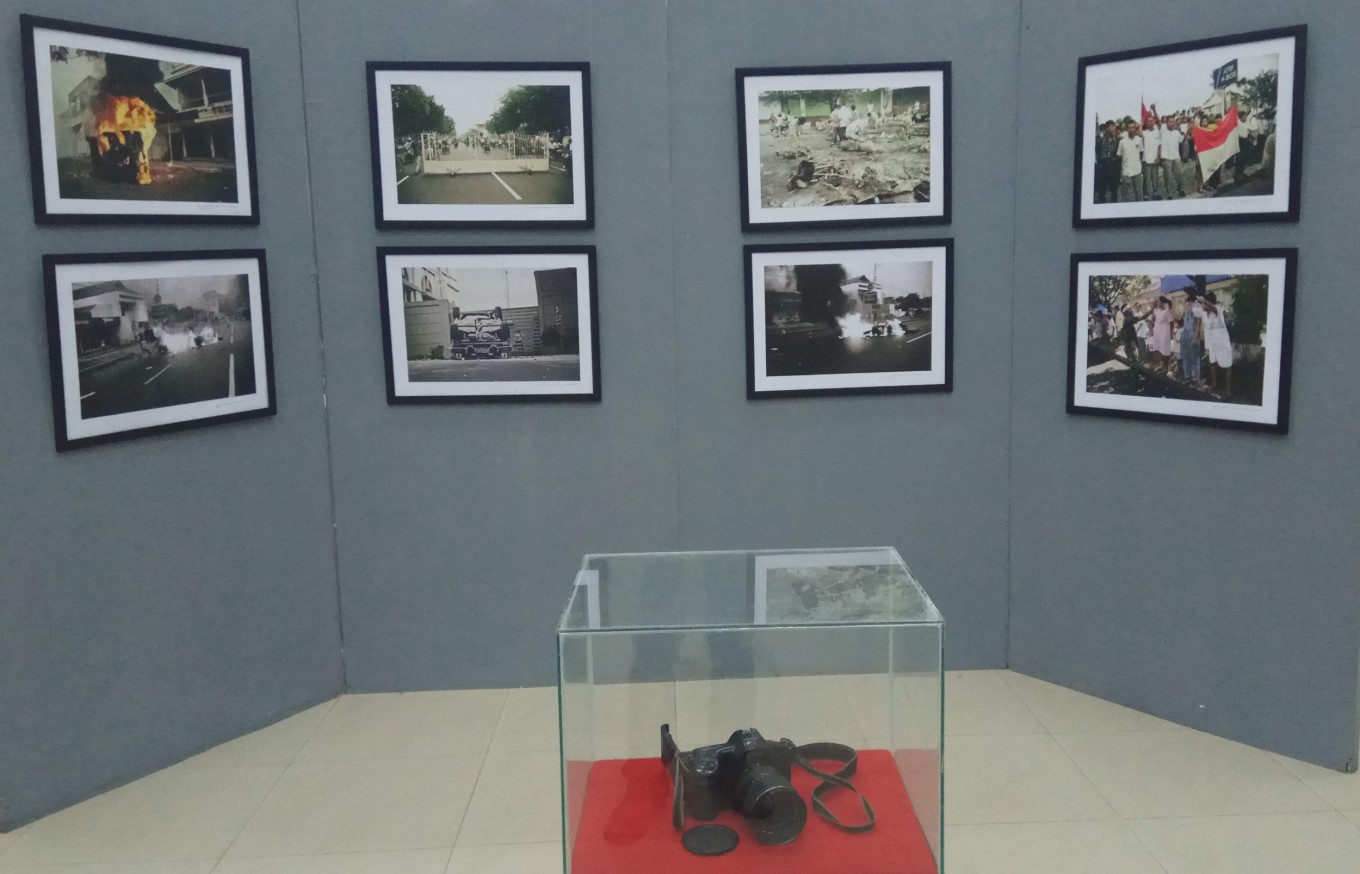Popular Reads
Top Results
Can't find what you're looking for?
View all search resultsPopular Reads
Top Results
Can't find what you're looking for?
View all search resultsAcknowledging our dark past
Removing violent accounts from history books will not "right a wrong" but rather would whitewash our past.
Change text size
Gift Premium Articles
to Anyone
T
he mass rapes that occurred during the May 1998 riots, which ultimately led to the fall of then-authoritarian president Soeharto, are thoroughly documented and must not be removed from history for whatever reason.
At that time, amid a series of demonstrations demanding reform, violence and civil unrest escalated, especially in Jakarta. This period tragically resulted in over 1,200 deaths, and at least 52 people, predominantly Chinese Indonesians, were victims of rape.
In recent weeks, Culture Minister Fadli Zon, a long-time loyalist of President Prabowo Subianto, former son-in-law of Soeharto, has come under fire for his denial of the mass rape. Earlier this month, Fadli, already facing scrutiny for a controversial project to rewrite history, dismissed the mass rapes as mere rumors, asserting a lack of evidence to support the allegations.
Last week, he clarified that he was not denying the existence of sexual violence during the riots. However, he urged caution in referring to the incident as "mass rape" because of what he claimed was inconclusive data.
Fadli's comments drew fierce backlash from women's rights activists, historians, advocates for survivors and members of the Chinese-Indonesian community, all of whom found his remarks deeply hurtful.
His statements stand in stark contrast to official findings. A government-sanctioned fact-finding team in 1998 documented 85 cases of sexual violence, including 52 rapes. Furthermore, a 2003 investigation by the National Commission on Human Rights (Komnas HAM) concluded that the May 1998 riots constituted crimes against humanity and gross human rights violations. While Komnas HAM submitted its report to the Attorney General’s Office (AGO) in 2003, no investigation into the case has been launched to date.
The widespread, if not systematic, violence against women nearly three decades ago also prompted women activists to call for the establishment of what is now known as the National Commission on Violence Against Women (Komnas Perempuan).
The memory of former President Joko "Jokowi" Widodo's recognition of the May 1998 riots (among 11 other cases of gross human rights violations) just about a year ago was still fresh when Fadli made his recent comments. Komnas HAM has unequivocally stated that Fadli’s denial of mass rape is inaccurate, citing this 2023 recognition and the subsequent government reparation program offered to victims and their families.
We deplore Fadli’s dismissive statements. As Culture Minister, he should be actively working to help the nation rebuild its collective memory and facilitate healing.
Unfortunately, Fadli is not the first minister in President Prabowo’s cabinet to face criticism for comments on past atrocities. In December of last year, Coordinating Law, Human Rights, Immigration and Correctional Services Minister Yusril Ihza Mahendra drew ire for suggesting that the May 1998 tragedy could not be considered a gross human rights violation.
Against the backdrop of Fadli’s recent comments, a draft program circulating among academics selectively omits key human rights violations recognized by the state, including the enforced disappearances of pro-democracy activists in 1997 and 1998. Reports indicate it includes only two of 12 recognized atrocities that occurred between 1965 and 2003.
Removing violent accounts from planned new history books would not "right a wrong" but rather would whitewash our past. While it may be inconvenient for the current regime, we must recognize and reconcile with our violent history. One vital way to achieve this is by allowing new history books to tell the truth, rather than concealing it.
A nation that deliberately chooses to forget or distort its historical past, particularly its darker chapters, risks repeating the very mistakes and atrocities it seeks to bury. Such revisionism can foster a climate of impunity, undermine social cohesion by invalidating the experiences of victims and ultimately erode the trust between the government and its people.
Without a truthful reckoning with history, a society is deprived of crucial lessons, hindering its ability to achieve genuine reconciliation, build a just future and develop a robust collective identity founded on integrity and empathy.











